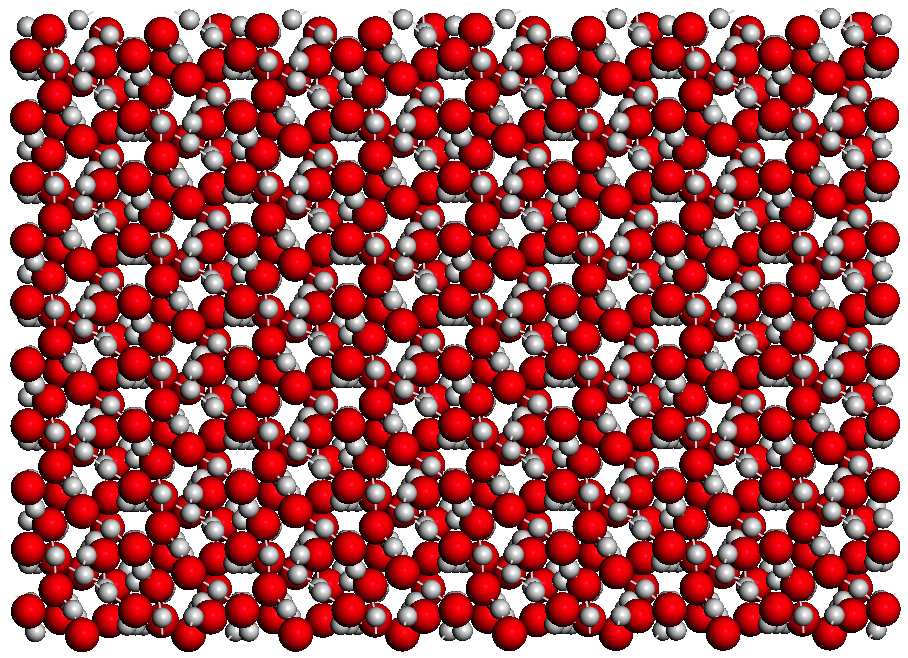
Submitted by Prof. C.J. Pickard on Wed, 12/10/2016 - 18:58
Computational searches for stable structures of ice and other compositions of water and hydrogen have predicted a new range of complicated water-ice phases of previously unknown structure types.
This finding has led to a revision of the predicted phase diagram of H2O at extremely high pressures.
One of the results of the study is the prediction that H2O decomposes into hydrogen peroxide (H2O2) and a hydrogen-rich phase at pressures of a little over 5 terapascals (TPa).
Water ice under high pressures is an important component of gas giant planets, and it has been speculated that it is present in the core of Jupiter at pressures as high as 6.4 TPa. The pressures at the centres of massive exoplanets can reach 10 TPa or more, however establishing the properties of materials at these high pressures is very difficult due to the experimental challenges of replicating these conditions on Earth. We can, however, make progress using theoretical approaches.
Hydrogen and oxygen are, respectively, the most abundant and the third most abundant elements in the solar system. The spatial distributions of elements within planets are understood to some extent, but it is not in general known what chemical compounds are stable at TPa pressures.
The theoretical study, published in Physical Review Letters, also concluded that if H2O occurs under conditions of excess hydrogen, for example, at the core-mantle boundary in a gas giant planet, the decomposed hydrogen-rich phase might act as a “hydrogen sponge”. The researchers suggest that these sponges might soak up the hydrogen from the mantle and could play a role in the erosion of the ice component in the core of gas giants.
It is also predicted that H2O will become metal at a higher pressure of just over 6 TPa, and therefore H2O does not have a thermodynamically stable low-temperature metallic form.
Lead author of this paper, Professor Chris Pickard, said of the discovery, "This result reminds us how little we know about chemistry and mineralogy of these remote planetary bodies. The breakdown of water to produce hydrogen peroxide is the precise opposite of what we would expect. I am sure that there are many more surprises to come."
Overall, this study suggests that H2O is not a stable compound at the highest pressures at which it has been suggested to occur within Jupiter.
Journal link: Decomposition and Terapascal Phases of Water Ice, Phys. Rev. Let. DOI: 10.1103/PhysRevLett.110.245701

